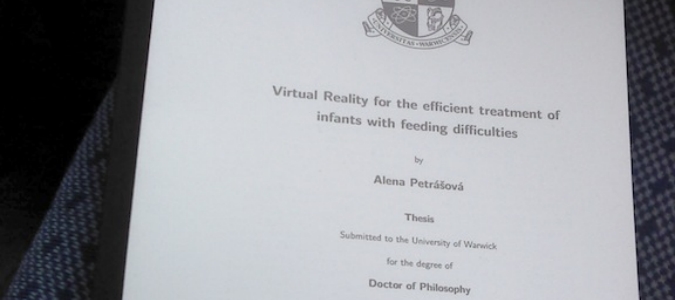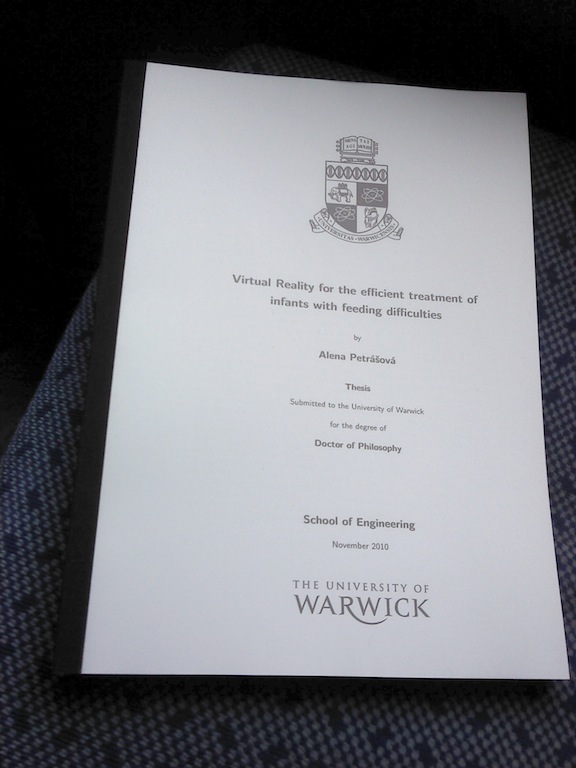Finally, I have an explanation, why I and my dear Andrej had disappeared from Skype since Friday. I flew to England and Andrej was offline, so he didn’t have to explain where I was. On Monday I had my final oral examination for my PhD and so I spent a long weekend before it by consulting everything with my supervisors, preparing a presentation and reading again and again my work and related papers. As England must be always somehow unique, this examination is also special comparing with other countries and I finally understand why it is called defence. It is not just a formal matter, in which the student presents his work to mass audience with safe title in his pocket. A thesis is read by two experts in the field, one internal and one external. They read it in the details and write up all sorts of comments and send report to the university. You and your supervisors do not have access to this information and you can only guess what their opinion on your work is, what they are interested in and you spend some days by reading their papers so you learn about them as much as possible. Your final examination is a discussion with these two guys. One advisor of examiners must be present as a witness, but has no right to intervene in defence. In essence, there may be your supervisors present as well, but as they cannot intervene neither, they usually stay in their office nervously stepping two hours, which is usual time of the defence. There are four types of the results you can get. The first one is that you pass without any changes that needed to be done, but that is very rare case, because the examiners always find a typo in the work that needs to be corrected. The second option are minor changes. That means that something small has to be rewritten or added, some mistakes need to be corrected. The third option are major changes. This is more problematic, as you usually have to perform some new experiment or study. But it is still not a disaster, because when you finish it and add it to your work you will pass. It just costs a lot of time. The last option is to not pass. Well, your supervisor should tell you when he/she thinks that your work is not worthy PhD yet, but it also happens. The defence is all about communication and your skills to convince them about what you have done.
On Monday morning I had such a strange mood and I couldn’t stop smiling. I chatted with my supervisor about things like what is my contribution to knowledge, the main hypothesis and how could be my work applied in reality and extended to other applications. Then I fed myself with some sandwich. I ate sweet biscuits and drunk cocoa to calm down. I drank enormous amount of water and I still felt dehydrated. In the afternoon, I started trembling until the advisor of examiners came to pick me up. After a short presentation of the main points of my work, the examiners started asking all possible kind of questions, but luckily I could answer all of them. And then we went through whole thesis in detail, examining all the objectives, experiments, statistics, etc. that were used. Thanks to glazed room I could sometimes see one of my supervisors drinking hot chocolate trying to see what is going on in our room and then another one how he was occasionally looking out from his office if we finished or not. My defence lasted three hours and ten minutes. Although I had really good feeling about it, I felt exhausted after all that talking and explaining. Then I waited 20 minutes outside until they decided what the verdict was. I passed with minor changes and they thanked me for a nice discussion. My supervisors looked incredibly happy and I drank another litre of water. I celebrated the result with my colleagues, we had a nice dinner and in the evening I felt asleep at the moment.
Well, that’s the weekend summary. Currently I am with my dear husband and I enjoy that feeling when I realise that it already is behind me.

